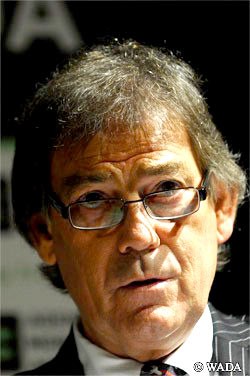David Howman says that law enforcement agencies should be used as part of fight
 Using the US system as an example to show how things should be done, World Anti Doping Agency general director David Howman has called on more countries to use law enforcement agencies and other measures to fight doping in sport.
Using the US system as an example to show how things should be done, World Anti Doping Agency general director David Howman has called on more countries to use law enforcement agencies and other measures to fight doping in sport.
Speaking to the Association of National Anti-Doping Organisations in Colorado Springs, he said that the methods used by the US government should be used as a template, with enforcers there working with the US Anti-Doping Agency to arrest, indict and convict high-profile athletes.
“You see they’re not scared to do the hard work. They’re not scared to look at high-profile athletes who might be caught,” he said, according to AP. “These kind of doping issues aren’t present only in the United States. It’s a global issue.”
The clearest current example of the government using means outside traditional dope testing is in the federal investigation into the former US Postal Services team and the riders and officials employed there. Federal investigator Jeff Novitzky is looking into allegations of doping and people are being called to give testimony to a grand jury. They are also working with Interpol to follow leads overseas.
That follows on from the previous Balco case, where a large doping ring was broken up and major household names such as Marion Jones, Barry Bonds and Tim Montgomery were investigated. Jones and Montgomery went to prison as a result.
Howman believes that traditional anti-doping tests are important, but admits that knowledgeable athletes can avoid positive result by using undetectable products or by careful timing of their programmes. Because of this, he says the efforts of others are also required, including those enforcement agencies. The US system’s willingness to do this led to his praise.
In contrast, Russia and Brazil were highlighted by WADA as two countries which are not doing enough. Neither sent a representative to the conference, despite the fact that Russia will host the winter Olympics in 2014 and Brazil will be the venue for the summer Games two years later.
“It is a concern in the general fight against doping that such big countries do not have the adequate anti-doping programs in place in the year of 2010,” AP quoted IOC medical commission chairman Arne Ljungqvist as saying. “The anti-doping fight has been going on for 40 years so it’s a little worrying that big countries like those are still not there.”
IOC president Jacques Rogge accepted that both countries were given the right to host the Olympics despite those clear issues. He said that it won’t happen again in the future. “From now, this matter will be a main point when evaluating the candidatures. This has been introduced as a new element in the bid process,” he said. “That is a lesson we have learned from the past.”